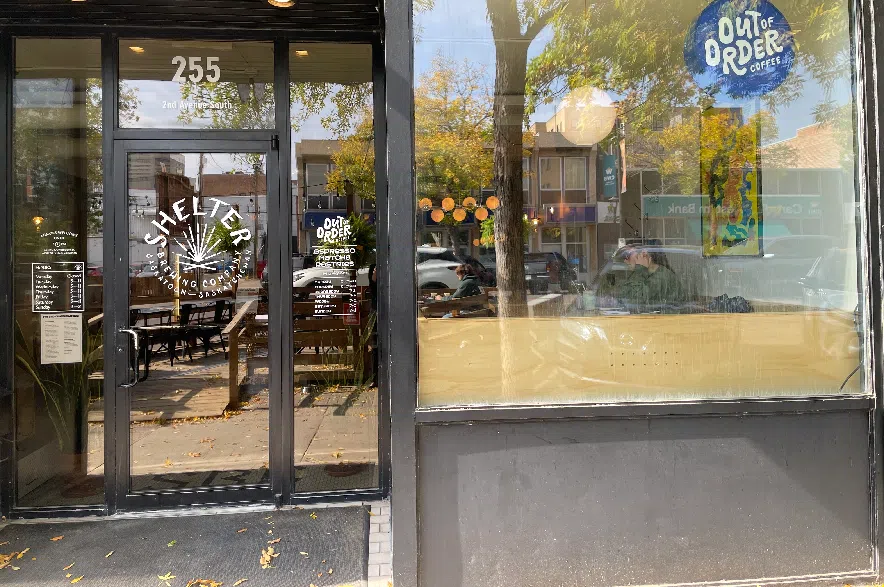If you’re confused whether to tip 10, 15 or even 20 per cent on your morning coffee, one Saskatoon cafe has the answer – don’t tip anything.
Out of Order coffee shop on Saskatoon’s 2nd Avenue has a strict no-tip policy, even going so far as to donate any change left behind.
Read more:
- ‘It’s ridiculous’: Why some Canadian youth feel ready to tap out of tipping culture
- New rules on tipping, price labelling take effect across Quebec
- Saskatoon Chamber says local businesses absorbing costs of rising crime and vandalism
While on the CKOM Morning Show with Mark Loshack, the shop’s co-owners Matt Horning and Sharmaine Heppner said instead of tips, their employees are paid a living wage.
“We’re just going to price things accordingly and take the pressure off the customer from having to provide extra wage for our employees when we could just be giving it to them in the first place,” Horning said about their decision.
Baristas at Out of Order have a starting pay rate of $20 to $22 an hour, depending on their training and experience. Sharing her firsthand experience of working in the service industry, Heppner said these wages mean employees will have a more stable income, eliminating the stressors that come with a fluctuating, tip-driven income.
Fluctuations are especially true in Saskatchewan, with Horner saying how servers cash in more tips during the summer than winter, when the numbers of customers dwindle.
It doesn’t mean the duo are strictly anti-tipping across the board, though, as Horning said there’s instances in the service industry where tipping makes sense, letting people reward good service. That includes high-end restaurants where people pay hundreds or thousands of dollars for the experience.
“Tipping in those specific instances, those servers, or those chefs, or whoever it might be, bartenders, they’re getting quite a lot of extra income,” he said. But, for Horning, tipping culture has gotten out of hand with tips being added to things that don’t have service attached to them, like retail items.
Although the coffee shop’s no-tip policy is meant to benefit employees and customers alike, Heppner said it’s taken people some getting used to.
“Some customers feel that they have this sense of responsibility to fill in that gap between what an employer is going to pay and if they’re willing to pay a living wage,” she said, explaining how people just want to make sure service workers are being taken care of.
The pair are calling on other businesses to make the same transition to a no-tip policy. Horning said he especially wants to see that in businesses where employees don’t have the opportunity to make “huge tips.”
By paying a fair wage, it means workers won’t have to depend on whether someone selects that 20 per cent tip option.











